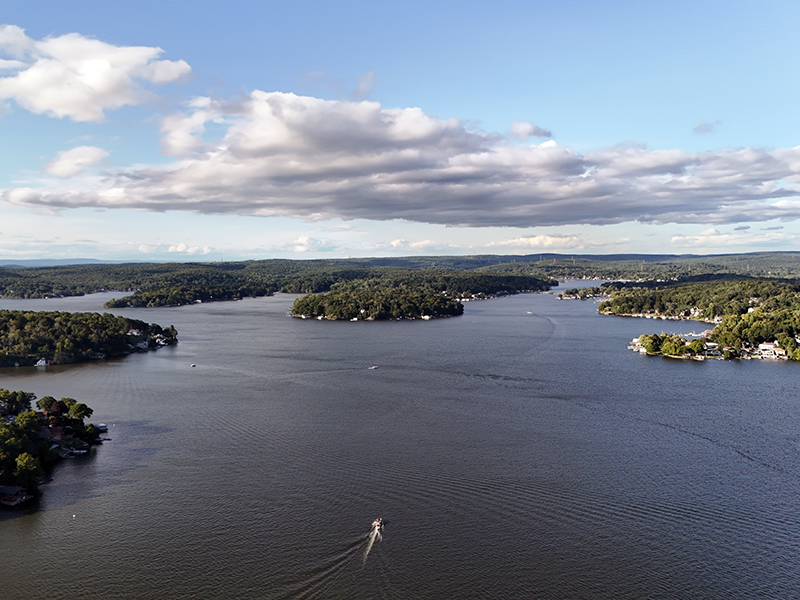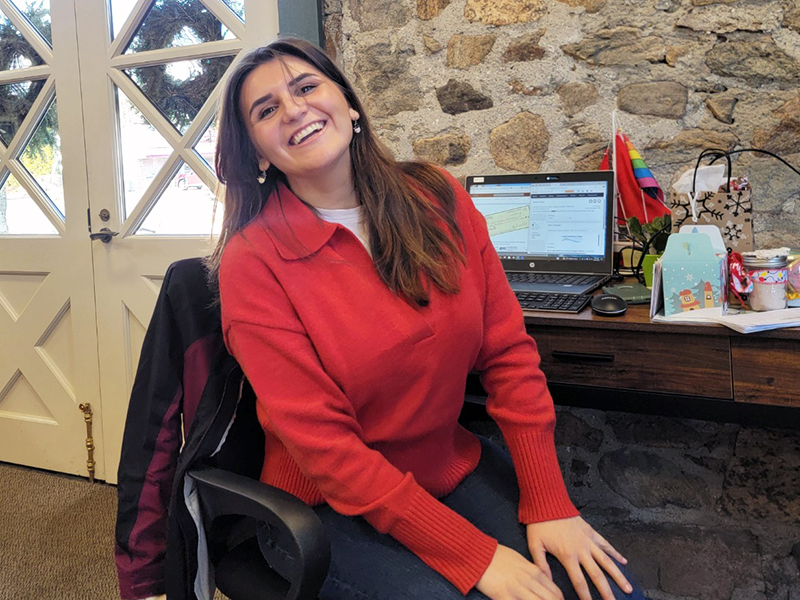
October 02, 2020| Advocacy, Environment
By: Marty Kane
On Tuesday, the Lake Hopatcong Foundation hosted a virtual meeting with the New Jersey Department of Environmental Protection (NJDEP) and the Lake Hopatcong Commission (LHC) to review the 2020 season at Lake Hopatcong and discuss positives and negatives. As many challenges as we all faced this year, on the lake we maintained above average water level, saw less HAB-related beach closures, and weed growth that tapered off mid-summer. We are thankful to have had these positive outcomes but realize there are still many challenges to discuss and lots of planning for the future.
The NJDEP, represented by Associate Commissioner Kati Angarone and other senior staff, was very interested in how Lake Hopatcong HABs demonstration projects were progressing with Colleen Lyons, Administrator of the LHC, and Fred Lubnow of Princeton-Hydro going through each of the efforts funded under state grants. The NJDEP was particularly interested in the initial promising results shown by Phoslock as well as the Borough of Hopatcong’s aeration efforts in Crescent Cove. Data on these and all projects are still being gathered and analyzed. We proposed a meeting for this winter for all HAB grantees to discuss the results of a host of different products and treatments being trialed throughout the state. We also discussed the DEP’s HAB monitoring program and how we can better communicate their strategy and results to the lake community. As part of their response effort, the NJDEP has purchased handheld fluorometers, which can provide NJDEP with important preliminary data on suspected HABs. The intent is to provide fluorometers and training to lake organizations such as the LHC/LHF to assist NJDEP in their HAB monitoring program.
In other issues, Hopatcong State Park is currently out on bids to hook Hopatcong State Park into sewers before next season. We also discussed impacts of road salt on the lake and work completed at Lake George and elsewhere in the Adirondacks and how some of this technology might be applied in New Jersey. Other topics included how the efforts to combat invasive species, weed harvesting in 2021, and the establishment of a new statewide lakes organization to help Trenton understand the challenges faced at Lake Hopatcong and other public lakes. This regular dialogue with senior NJDEP officials will be continued as a means to better understand each other’s concerns and address the lake’s issues as we move forward.

April 25, 2025
Community, Environment

April 25, 2025
Environment, Events

April 24, 2025
People